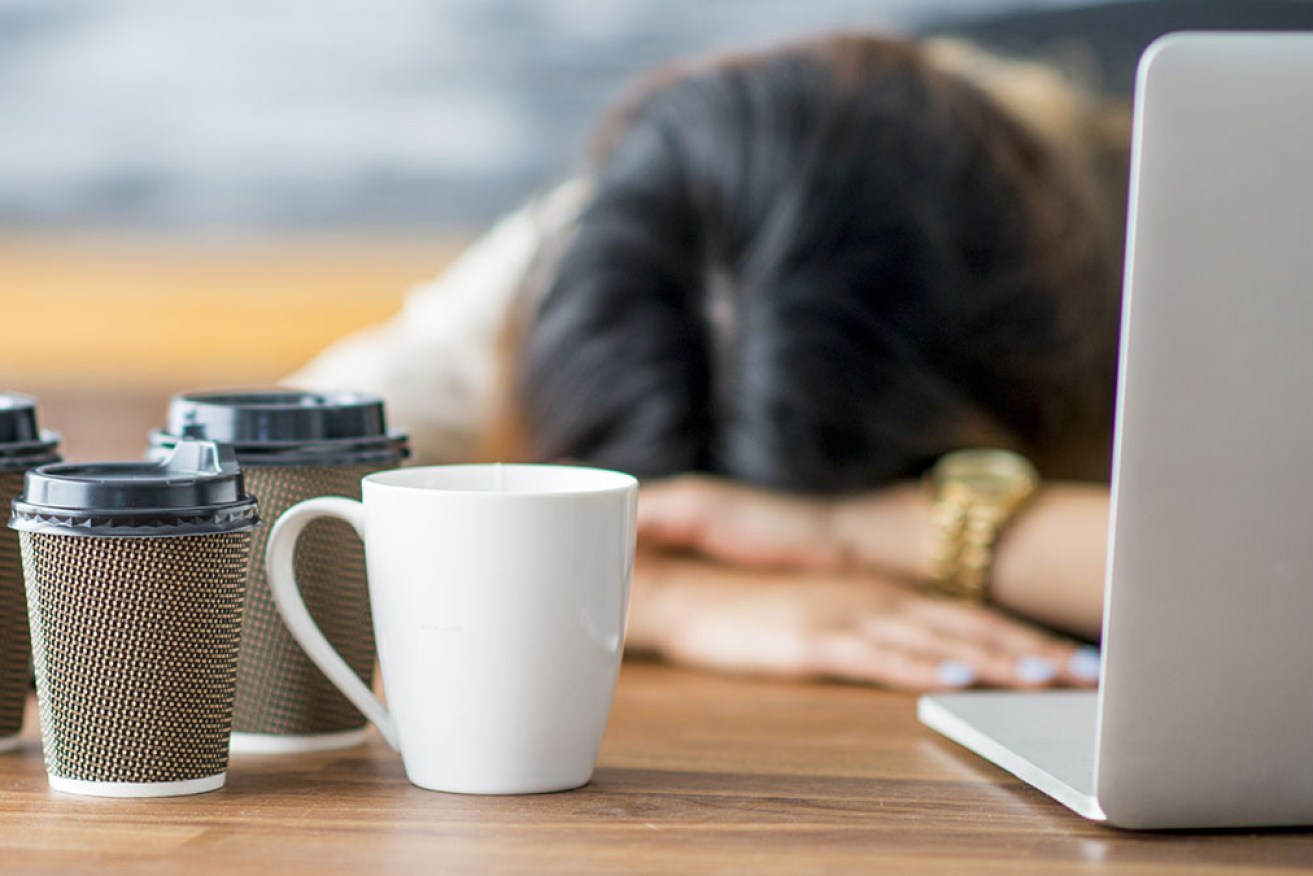Constantly tired and cynical? You might be burnt out


Everyone gets tired of work sometimes – but there's a difference between general tiredness and a burnout. Photo: Getty
Most of us will be sick of our jobs at some point in time, but there’s a difference between “sometimes” and a constant state of stress and exhaustion.
The latter is known as burnout, and it has recently been upgraded in importance by the World Health Organisation (WHO).
In its international disease classification, the global body has bumped burnout up from from a “state of exhaustion” to a syndrome specific to work.
The key characteristics? Exhaustion, negativity or cynicism towards work, and a below-par performance.
These are not uncommon experiences for workers, particularly those who log long hours or work in a role where they deal with people.
But there’s a big difference between an off week and an ongoing problem, Beyond Blue’s lead clinical adviser Grant Blashki said.
“It’s not just you hate this part or this part of your job – you can’t stand the whole thing,” Dr Blashki told The New Daily.
“And you’re not performing. You’re either not turning up, or doing what we call presenteeism. You are turning up, but you’re not really there, you’re not performing.”
Burnout is different again to depression and anxiety, Dr Blashki said.
Someone might be experiencing depression and/or anxiety, and work could be a part of that, he said, but the recent move from the WHO cemented it as a separate syndrome and diagnosis altogether.
The telling signs
Dr Blashki, also a GP and associate professor at the University of Melbourne, said the most common symptoms he saw in patients suffering from burnout were:
- Absolute exhaustion
- Cynicism and negative feelings: “(They) have a sense of disassociation. They’re just going through the motions. They might feel depersonalisation, like they’re watching a movie. They’re just going through the motions, because they’re over it.”
- And a reduced ability to do their job.
While there was no one profession that was at greater risk of burnout over others, the South Australian Health and Medical Research Institute’s Michael Musker wrote in The Conversation that emergency services workers, along with teachers, prison officers and retail staff – jobs that require a high level of personal interaction – could present with the syndrome more often.
Black Dog Institute founder and UNSW School of Psychiatry Scientia Professor Gordon Parker agreed, telling The New Daily it was those in caring professions who were most at risk.

Photo: The Conversation
How to protect yourself
Dr Blashki said one of the biggest contributors to reducing burnout was a supportive workplace culture, which was fostered from company leaders down.
“For employers, [it’s important] to make sure people have the capacity and the tools to deliver what you’re asking of them,” he said.
“And, get more support for people if they’re not managing.”
On an individual level, Dr Blashki advised people should:
- Try to take regular, short breaks from work
- Establish a clear boundary between work and home life, something he acknowledged was difficult to do in the connected world of smartphones and connectivity.
Professor Parker said preventative care should be tailored to each individual, and the triggers that could lead them to burn out.
“While it may be difficult for an individual to prevent triggering events from occurring at work (such as being under-resourced, forced overtime), anecdotal evidence suggests that positioning oneself as always being needed may make you vulnerable to burnout,” Professor Parker told The New Daily.
“Setting boundaries and preventing overloading yourself may help to prevent burnout.”
As for those who have already reached the burnout marker, Professor Parker suggested taking time off or reevaluating time spent at work, exercise, and getting involved in an activity outside of work to distract yourself.
- The Black Dog Institute is undertaking research into burnout in Australian workers. Click here to take part.








